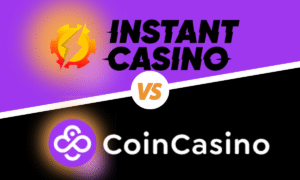[ad_1]
The revolutionary technology blockchain began with cryptocurrencies like bitcoin but has since expanded beyond the worlds of finance and banking. With a slew of new businesses and applications built on the technology, these industries now represent a mass decentralization that will soon impact the whole world. Blockchain helps distribute the cost of running a platform to its various participants, but rewards them for it in equal measure.
This decentralized model is already relevant for blockchain-based solutions such as cloud storage, payment processing, and cybersecurity. Increasingly, however, the technology also plays a key role in the content distribution arena.
To many, this is a better deal than the old ways, which saw control and profits stay in the hands of content hosting companies rather than the content creators themselves. Blockchain can significantly disrupt this imbalanced status quo, and seeks to put the power back in the hands those who create and consume content.
Key Takeaways
- Though blockchain technology began with cryptocurrencies, it has expanded into other industries and areas, including content distribution.
- Flixxo is an example of a decentralized content distribution service in which users earn cryptocurrency tokens for sharing videos across the network.
- The traditional model of content distribution tends to favor distributors over creators; blockchain technology may eventually level the playing field.
Turning the Tables
In return for security, hosting and distribution, users of services like YouTube allow the company to profit from their content. While YouTube stars can earn a healthy living from attracting viewers to their channel, there is no doubt that many of the profits don’t end up in their pockets. It might not seem like a bad deal to some, however. YouTube is an immensely popular destination on the internet, and gives creators a reliable, high-volume platform for free. They also handle the logistics required for creators to simply focus on what they do best: create.
Blockchain is turning the tables on this model. Flixxo, a decentralized content distribution platform, allows creators to offer their content to very specialized audiences, who pay cryptocurrency tokens to fund and enjoy their projects. To earn Flixxo tokens, participants in Flixxo simply make the videos on their computer available to the network, much like the peer-to-peer service BitTorrent. Whether these are the indie favorites of the filmmakers they’ve subscribed to or triple-A titles is irrelevant. This decentralized crowdfunding and hosting solution is offloading the costs of running the network on the users, but also making it more lucrative and rewarding to take part.
Blockchain-based solutions also have all essential security needs covered. Because of its networked nature, blockchain is impervious to hackers who can only reach a single node and not affect functionality for a whole network. Thanks to decentralized hosting and encryption, the system is entirely self-sustained.
A World with Decentralized Distribution
Currently, most content creators are not paid enough for their services. To use a real example, popular YouTuber Pewdiepie earned $13 million in the year leading up to June 1, 2019. This is a considerable sum, to be sure, but is low considering that he has over 103 million subscribers on his channel. That’s almost a third of the entire population of the United States. If each were willing to pay just a single dollar per year to watch as much of Pewdiepie’s famously silly antics as they like, his annual take would increase almost tenfold.
Unfortunately, this is the standard for many industries. In Hollywood and the music scene, actors and musicians are paid handsomely for their talents, but it’s the distributors that reap the most profit. A beautiful performance by a popular actor may result in a million-dollar payday, but will earn the studio hundreds of millions in worldwide ticket sales. As blockchain technology becomes more ubiquitous, those who once profited from managing centralized content hubs will no longer be able to exercise the same degree of control over the system.
Looking Towards the Horizon
In the future, viewers will forego paying subscriptions to platforms and can instead give directly to the content providers they love. Creators will therefore receive a larger share of the pie. By allowing the blockchain to use their computer to support the network, the costs that YouTube incurs from hosting billions of videos and a global audience are distributed evenly, and all will be happy to pay the price.
As this type of cooperative system is adopted, the benefits of cutting out the middlemen will become more apparent. A producer who was once hesitant to brand herself as a “YouTube star” will be able to be famous in her own right. Consumers, in turn, can pay less for what they want to watch, and not a single cent for irrelevant content. It may not happen overnight, but those who watch closely already see a revolution in the making.
[ad_2]
Source link






More Stories
SafeMoon Space – THE NEXT BIG DeFi. Last Chance To Buy/Reserve SMSP Token
The “Whirlwind” NFT Game And Dragon Pool Is The Highlight Of The Ecosystem Blockchain – Gaming
FRET: Future Real Estate Token That You Shouldn’t Miss Out On